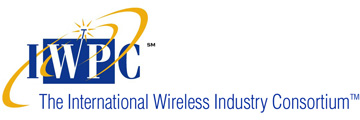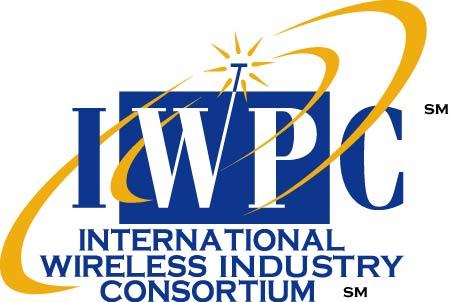When
April 25-27, 2016
Where
JW Marriott Dongdaemun Square Seoul
279, Cheonggyecheon-ro, Jongno-guSeoul 110-125, Korea
Introduction
In preparation for delivery of 5G services for the 2018 Winter Olympics, KT Telecom will host IWPC members in Seoul to explore innovation and advances in network infrastructure and user equipment. Specific use cases are emerging as candidates for early prioritization, including enhanced mobile broadband, massive machine type communications and ultra-reliable/low latency communications. As standards for 5G will be in the melting pot for some time, this workshop will provide an opportunity to assess initial technology drivers as well as maturity and timing of prospective 5G technology.
Workshop Goals
- Assess requirements and expectations of key 5G stakeholders and influencers
- Explore early “pre-standards” 5G plans, opportunities and implementation challenges
- Understand how plans depart from LTE deployments and roadmaps
- Debate trade-offs for regional and harmonized global 5G plans
- Understand what can realistically be achieved by 2018 and towards 2020?
Agenda
|
DAY 1, April 25 Monday 19:00
|
Evening Reception and Registration ` |
At hotel
|
||||||||
|
DAY 2, April 26 Tuesday 08:00
|
Introductions |
|
||||||||
|
09:00 |
Towards the 2018 Winter Olympics
|
Welcome
Head of KT Network Group
Towards 5G Pre-Commercial Service in 2018
Executive Vice President
|
||||||||
|
10:00 |
Networking Break |
|
||||||||
|
10:40 |
Service Provider Perspectives:
|
5G: Beyond Your Imagination
CTO, Wireless Department
5G: An Operator’s Perspective
Director, RF Technology Strategy
|
||||||||
|
12:00 |
Networking Lunch |
|
||||||||
|
13:00 |
OEM Vendor Perspectives
|
5G
RAN Test-Beds
Researcher
Director 5G Research & Collaboration
Overview of 5G
Senior Expert
|
||||||||
|
15:00 |
Networking Break |
|
||||||||
| 15:40 |
Technology Enablers |
5G: Network of Tomorrow
Director, Wireless Access
| ||||||||
| 16:20 |
End of Day Panel |
Host, invited service providers
|
||||||||
| 17:00 | Adjourn | |||||||||
| 19:00 |
Networking Dinner - Bamboo House |
Bus
to Depart from Hotel at 18:15 |
||||||||
|
DAY 3, April 27 Wednesday 08:30 |
OEM Vendor Perspectives (continued)
|
Bringing 5G into Reality
Senior Project Manager
DAS’s Evolution for IoT in the 5G
Chief Operating Officer
|
||||||||
| 10:00 | Networking Break | |||||||||
|
10:40
|
System Vendor Perspectives
|
5G Technology Framework – Higher Frequency, Higher Bandwidth + Channel Sounding
Technology Manager
TRIANGLE: An End-To-End Testing Ecosystem for 5G
Research Engineer
|
||||||||
|
12:00 |
Networking Lunch |
|||||||||
13:00 |
Technology Enablers
|
5G Roadmap to Backhaul and Fronthaul Integration and 2016 Trial Plans
VP, Head of R&D Labs, Korea
Test and Measurements Enabling 5G Trials Leading Towards Commercial Deployments
Senior Technologist
Silicon Technologies for mmWave 5G Handset and Infrastructure Radio Interface
Director, Strategic Applications, Product Management
|
||||||||
|
15:00 |
Closing Panel |
Host, invited service providers, OEMs and Technology Enablers
|
||||||||
| 15:30 | Networking Break | |||||||||
| 16:00 |
Demo - "K-Live" |
Hosted by:
|
||||||||
|
|
FAQs
- What is the deadline for presentation/handout materials?
- What can I do to prepare for speaking at an IWPC workshop?
- Who are the attendees?
- What are the costs/registrations fees?
- Hotel information?
- What are the travel options from the airport to the hotel?
- Are there any audiovisual requirements?
- Will business cards be collected?
- What is the dress code?
- How will handout materials be provided?
- What is the deadline for
presentation/handout materials?
Deadline for electronic version of presentation/handout materials: Friday, April 15th.
- What can I do to prepare for speaking an at IWPC workshop?
Click on the link below for a short video guide regarding preparing for and improving your IWPC presentation:
- Who are the attendees?
- We do not permit the Press.
- We do not permit Analysts.
- We do not permit Consultants.
- We do not permit 3rd party sales reps.
- We only permit "first hand knowledge experts" in business and technology issues, prepared to contribute to the discussion.
- What are the costs/registrations fees?
ALL Hosts, Speakers, Panel Members and Attendees will be asked to cover out-of-pocket workshop costs such as conference room costs, food (Social Reception plus First Day breakfast/lunch/dinner plus Second Day breakfast/lunch plus Breaks), audio/visual costs, etc.
These costs will be $1,195.00 (USD) per person. (For IWPC Members only.)
ALL Hosts, Speakers, Panel Members and Attendees will be asked to pay this fee in advance with either Visa, MasterCard, American Express, cash, personal check or business check. Make checks payable to IWPC.
- Hotel information?
JW Marriott Dongdaemun Square Seoul
279, Cheonggyecheon-ro, Jongno-gu
Seoul 110-125, Korea
Phone: +82 2 2276 3000
The IWPC room block rate 220.000 KRW. The cut-off date for reservations is Thursday, March 31th. After that date, rooms cannot be guaranteed at the IWPC rate. Hotel reservations can also be made on-line: Book Your Group Rate for IWPC. - What are the travel options from the airport to the hotel?
Directions and transportation options will be posted as soon as possible.
- Are there any audiovisual requirements?
A Computer Projector will be available for the speakers.
In addition, we audiotape all presentations and the interactive discussions. Post workshop, presentations are made available to IWPC Members on the IWPC WEB site, along with “recordings” of all presentations and panel sessions.
- Will business cards be collected?
Business cards will be collected at the door from all attendees. We will make copies of these cards, which will be available to all who provided a business card.
- What is the dress code?
Business casual suggested. No ties, please!
- How will handout materials be provided?
For ALL IWPC members:
All IWPC members are invited to submit materials to be included in the online workshop folder in the IWPC Research Library. This should NOT BE SALES MATERIALS. Rather, we suggest it contain technical information about your technology as it relates to the workshop topics.
For all companies who will be making a presentation at the Workshop:
You are invited to submit an advance copy of your presentation, complete with graphics and illustrations.
These materials will be included on the IWPC website Research Library.
Please submit these materials either by email, as a Word for Windows file, Power Point files or PDF files.
- Go to www.iwpc.org
- Click on IWPC Activities Tab
- Under Workshops: Radio Access Networks Active Antenna Evolution
- Click on Submit Presentation Proposal. Complete the form and attach your presentation.
- Once we receive your presentation we will send an email confirmation.
AS BACKUP, PLEASE BRING AN ELECTRONIC COPY USB STICK WITH YOU!









